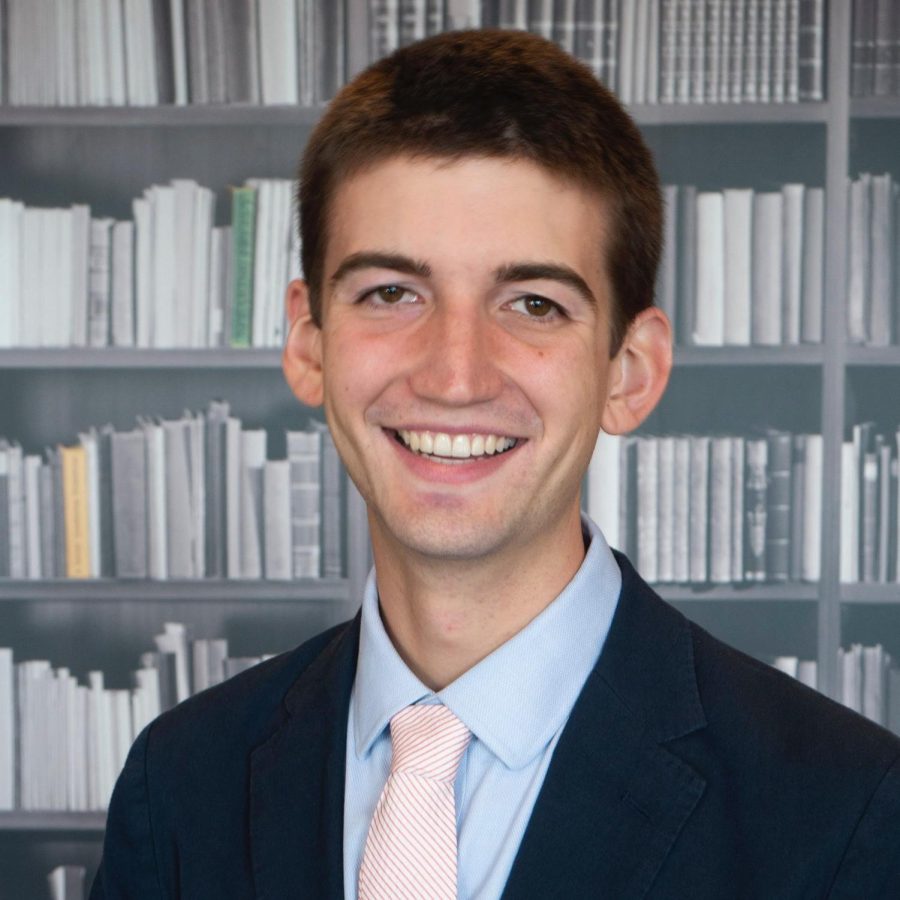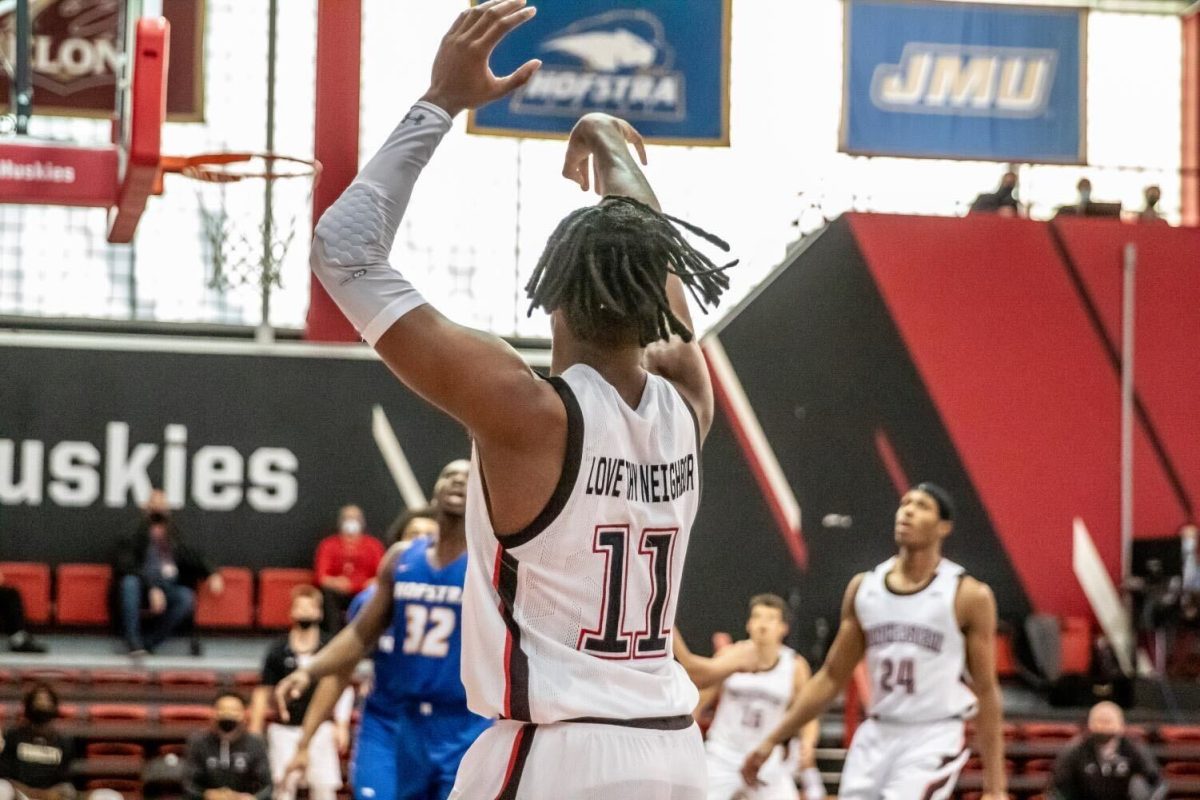Op-ed: NU’s protest policy needs to go
November 8, 2022
Northeastern’s academic plan targets becoming an “inclusive university” by 2025. To meet this goal, it claims that it must ensure the “engaged participation” of its community. So why does the university restrict the right of its faculty, staff and students to peacefully protest?
Northeastern currently prohibits all members of the community from holding a peaceful demonstration on the university’s property without the permission of the Center for Student Involvement, or CSI. To receive permission, CSI requires student organizations to submit a demonstration permit application form “at least 7 days before [the] organization intends to demonstrate on campus property.”
Northeastern is a private university, meaning that it isn’t bound by the First Amendment like public schools, and therefore, has greater legal freedom to regulate student expression. Nevertheless, Northeastern’s student handbook claims that “students enjoy the same basic privileges . . . as all citizens.”
Northeastern’s statements are out of line with its current policies. To encourage engaged community participation and protect students’ basic privileges, Northeastern must guarantee the right of its community members to peacefully protest on campus.
The First Amendment of the U.S. Constitution prohibits Congress from making any laws abridging “the freedom of speech” or “the right of the people peaceably to assemble.” Similarly, articles 19 and 20 of the Universal Declaration of Human Rights, a foundational human rights document drafted and adopted by the United Nations, establishes “everyone has the right to freedom of opinion and expression” and “the right to freedom of peaceful assembly and association.”
Protests are protected by the freedoms of expression and peaceful assembly. Freedom of expression, which is guaranteed by the free speech clause of the First Amendment in the United States, protects people’s ability to share information and ideas, whether through speech, writing or other media. Freedom of peaceful assembly extends the freedom of expression by allowing people to express and advocate for their ideas in groups as they do in demonstrations and protests. In my opinion, by forcing students to apply for permission to protest, Northeastern is limiting the exercise of these human rights.
If Northeastern were a public university, its demonstration policy would be unconstitutional. Tinker v. Des Moines, a 1969 Supreme Court case about a planned protest of the United States’ involvement in the Vietnam War, ruled that students retain their First Amendment rights on public school campuses when those rights do not “[intrude] upon the work of the schools or the rights of other students.” Further, the students’ freedom of expression “may not be confined to the expression of those sentiments that are officially approved.” Contrary to this ruling, Northeastern’s policy currently gives CSI the right to disapprove any planned demonstration.
Even if Northeastern is exempt from First Amendment regulations as a private university, why should it infringe upon student rights unnecessarily? Northeastern’s demonstration policy is restrictive and openly hinders activism and expression.
Applying for a demonstration permit requires a sponsoring student organization, meaning that students not associated with a student organization are unable to complete the form. This is a burdensome requirement because starting a student organization is time-consuming and requires 12 students, a faculty or staff advisor, and CSI approval. Someone’s lack of involvement with student organizations shouldn’t prevent them from peacefully protesting important current events.
Despite Northeastern’s demonstration policy applying to “all university faculty, staff, students, vendors, volunteers and visitors,” only students are able to create and be members of student organizations. This policy forces non-student members of the university’s community to depend on the students in charge of student organizations in order to exercise their right to protest.
Student groups have been able to organize successful protests with this policy in place. In April 2022, Huskies Organizing with Labor organized a demonstration on Centennial Common calling for better benefits and conditions for Northeastern’s dining staff. This demonstration was organized by a student group, but it included dining hall workers, student activists and other members of the university community. In September, Northeastern dining hall workers approved a new contract that more than doubled their pay and improved numerous other benefits.
Successful demonstrations of this sort, however, are somewhat rare. Peaceful protests are an important method of drawing attention to pressing current events. Well-timed protests in prominent locations are liable to attract media attention, which can multiply a protest’s impact. Because of this, prestigious universities like Northeastern have a special responsibility to protect their community’s right to protest. Unfortunately, Northeastern’s current demonstration policy prevents many members of its community from speaking out and advocating for themselves and others.
These long-standing problems with Northeastern’s demonstration policy are widely known. In 2013, after Northeastern’s Students for Justice in Palestine, or SJP, group was sanctioned for peacefully protesting an event, Boston Globe columnist Yvonne Abraham wrote a column opposing the policy. Following the university’s sanctioning of SJP, Northeastern’s National Lawyers Guild chapter protested the demonstration policy. Despite these negative responses, Northeastern upheld the offensive policy.
In 2018, the Foundation for Individual Rights and Expression, or FIRE, a nonprofit group focused on protecting free speech, called Northeastern’s demonstration policy “unreasonable” and hypocritical in their “Speech Code of the Month” series. In the 2022 College Free Speech Rankings released by FIRE and College Pulse, Northeastern was ranked 155 out of 203 colleges, receiving a “below average.” Northeastern was ranked below nearby colleges Boston University and Boston College and above Harvard University and Tufts University.
FIRE’s executive vice president, Nico Perrino, will be speaking at Northeastern Nov. 15 about the importance of free speech as a part of the Ortelian Society’s fall lecture series on speech and discourse.
To acknowledge the fundamental human rights of the university’s faculty, staff and students, Northeastern must change its demonstration policy. All members of the university community should be able to exercise their rights to expression and peaceful assembly without CSI approval and a sponsoring student organization.
Students are organizing a petition encouraging Northeastern to change its demonstration policy.
Arien Wagen is a third-year studying business administration. He can be reached at wagen.a@northeastern.edu.







